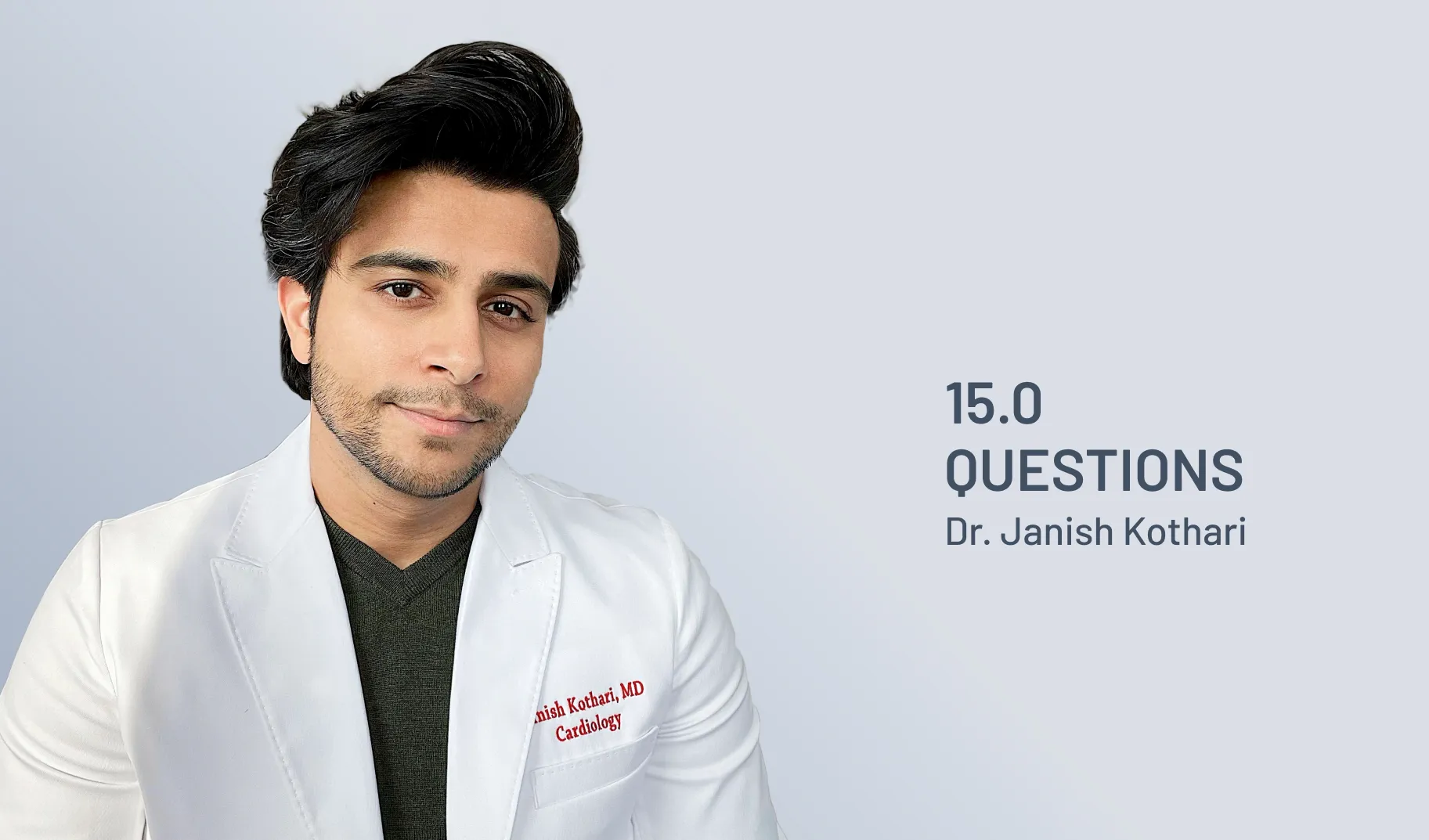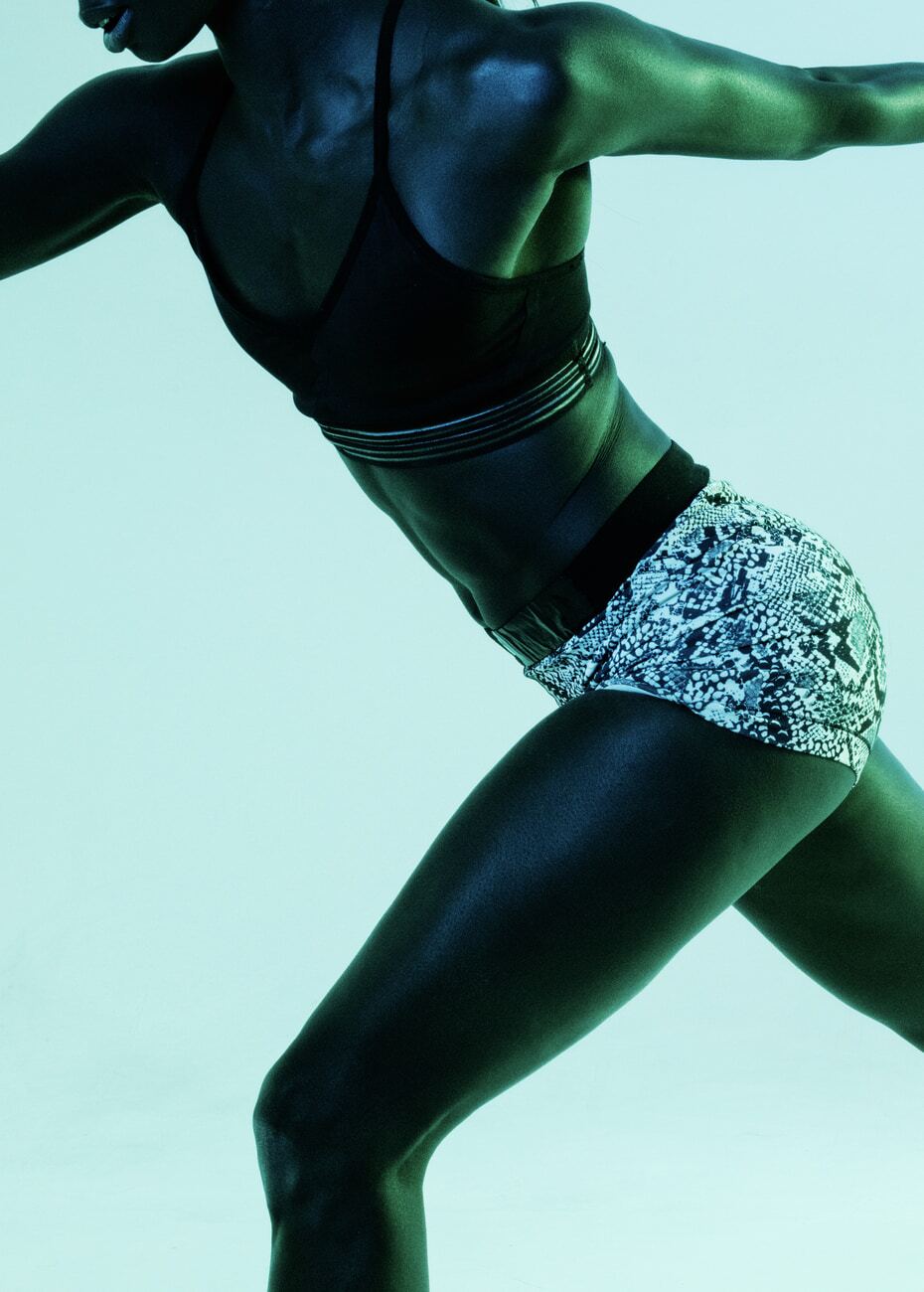A play on the 150 minutes needed to achieve a Paceline streak, 15.0 Questions presents influencers, industry experts, and fellow Pacers with 15 rapid-fire questions. Next up, cardiology fellow Dr. Janish Kothari (@doctajayyy).
This interview has been lightly edited for clarity and concision.
- Can you introduce yourself in 150 words or less?
I’m a board certified internist and currently a cardiology fellow at St. Luke’s University Hospital in Pennsylvania. I’ve been on this medical journey for over a decade now, and here I am, just five months left in my training before I’m out in the real world practicing cardiology on my own.
- What are your top tips for people at any age to keep their heart healthy?
I tell all my patients, regardless of their age, they’ve got to eat healthy, they’ve got to stay active, manage their weight, get good sleep. They’ve got to stay away from some of those vices, tobacco, alcohol—keep it in moderation—and manage their stress levels.
Recently, there’s been a lot more data on dental health as well. So if there’s one less obvious tip [it’s] the need to maintain adequate oral hygiene. [Some research has indicated] that there’s a [potential] link to increasing heart disease [up to about] three times because the inflammation that we have around our gums, periodontal disease, can create overall inflammation that can lead to adverse effects for the heart.
- What are some myths around heart health that you hear?
[One myth is that] heart disease affects all races equally and there’s a plethora of data out there that just shows that’s not true. Unfortunately it affects, disproportionately, Black and African-American populations. And [some research shows people of South Asian descent contract coronary disease at earlier ages compared to most other racial/ethnic groups].
Also, I recently had a patient that said, “Hey Doc, I’m doomed because I have this really strong family history of heart disease. There’s nothing that I can do.” [But I told him] that can be obviously discouraging, but in reality, you’re the kind of guy that we want to practice preventative care on, especially because of your family history. So let’s get behind that.
- Are you seeing any trends, positive or negative, when it comes to heart health?
Having been in this field for about a decade now, I feel like for whatever reason, there’s not that much of an emphasis on preventive care, and I think that needs to be at the forefront of intervention. [We should be] improving access to quality healthcare and facilitating widely available low cost treatment strategies.
- Can you talk about the importance of 150 minutes of aerobic activity per week when it comes to heart health?
As a cardiologist, I try to stay pretty current and pay attention to what a lot of these governing bodies are suggesting. The American Heart Association recommends 150 minutes of moderate intensity activity, or 75 minutes of vigorous activity per week. From my perspective, a combination of both of them is probably ideal. And actually, a lot of the data shows that we’re not doing that. One in five [people] are actually getting enough exercise to maintain “good cardiovascular health.” That’s like 20% of the population. And I don’t know about you, but that’s kind of scary to me.
Also, the advisory committee that made these recommendations has shown a positive relationship between overall cardiovascular health and regular physical activity. They even went as far as to say that there’s such confidence in this data, that [it’s unlikely to be modified by future] research.
- What are your personal favorite ways to stay active and hit your Paceline Streak?
Before I came across Paceline, I had recently started training for the New York City Half Marathon. And I’ll be honest with you, I’ve never actually really enjoyed running, so I wouldn’t really call it a personal favorite of mine. But because of the Paceline app, I started playing a game with myself to see how long I can keep my Streak going. So that’s been fun and a little challenge that I set for myself. Outside of running, I’m pretty active: I play basketball vigorously three times a week, and I do two-hour sessions at a time. And the days that I’m not playing basketball, I’m weightlifting and things like that.
- Do you track your workouts or use a wearable for anything else?
For my birthday about two years ago, my wife got me an Apple Watch. So that’s something that keeps me in check. And I wear that during my workouts.
- How do you recover after or between workouts?
I really focus on stretching before, during, and after my workouts. It doesn’t have to be a 30-minute session, just focus on the key muscle groups that you targeted. Outside of that, hydration is key. I’m drinking more than a gallon of water a day. [When] you’re working out so much, your body’s using all these resources, so try to replenish them. A lot of times I’m supplementing the hydration with electrolytes [and] I use a lot of BCAAs that actually help with muscle growth and regeneration. I’m [also] drinking about one to two protein shakers of protein [a day] and getting [enough] sleep. Sleep is important.
- Best fitness or wellness advice you’ve ever received?
Consistency is key. I think as human beings, we’re so programmed to expect immediate results. Let’s face it, fitness is not like that. You can put in effort for weeks or even months and you won’t see any major results. I understand that it can be discouraging. So [when I got] the advice that “consistency is key” [it] was truly revolutionary for me. I think that you have to just stick to it and allow it to become a part of your lifestyle. And I’ll be honest, I’ve struggled with that in my day too, just staying consistent. But I try to set really small goals for myself and work my way towards achieving them. Small wins turn into bigger ones down the road.
Also, I realized that working out doesn’t have to be boring. It doesn’t make sense to do a workout that you just absolutely hate doing. And there are plenty of ways to get out there and be active with things you enjoy. For me, it’s weightlifting and playing basketball. For other people, it might be high intensity dance class, yoga, Pilates, cycling, Peloton, whatever it is. Point being, there’s a plethora of things out there. Just get out and do it.
- Best fitness- or wellness-related investment you’ve ever made?
Well, I didn’t make the investment myself, but I think the Apple Watch really helps me keep track of my progress and set goals for myself. And there’s a community of people, your friend circle, family, [other] people that have it, and you get to see where everybody’s at.
- Best personal finance decision you’ve ever made?
Oh, well, index funds. I’ve been plowing money into that as much as I can. I’m young, so time and compound interest are on my side.
- What are your favorite Paceline rewards?
My wife and I really enjoy the lululemon and Whole Foods gift card giveaways. We’ve also made some purchases from The Body Shop with Paceline discounts. But I also just [like] how it’s a revolving door of rewards. It keeps changing and there’s a variety of things for everybody.
- What are your thoughts on Paceline’s mission to change the nature of preventive health in society?
I honestly think it’s pretty remarkable. Healthcare hasn’t been revolutionized from a consumer perspective for so long. Outside of pharmaceuticals and technological advancements, I feel like health for the average person has stayed relatively the same. So I think the idea of turning health into a form of currency is long overdue. And I feel like as the field continues to evolve, more people will start adopting the ideology. As I mentioned earlier, people are inherently drawn to immediate results [but] fitness doesn’t provide that. So the concept of rewarding the process in itself I think has limitless potential. And I can see a not-so-distant future where insurance companies start adopting this technology and premiums go down because they see their customers are taking health into their own hands. Insurance companies for cars are already doing that. If you don’t get into accidents, your premiums are lower. So why not your body?
- What’s on the horizon for you?
I have about five months left of my training, and I’m currently in the process of finding jobs as a non-invasive cardiologist. So I’m trying to move back to the New York, New Jersey area. Otherwise, I’m looking forward to getting to that finish line and reflecting back on this long journey. I’ve been on it for over a decade now. It’s really nice and makes me happy that I’m finally starting to see the culmination of all my hard work. And it’s exciting being on my own and just getting out there and making a difference.
- Any parting words?
When it comes to taking care of your health, I tell students and my patients that it’s in your hands. I know there’s certain limitations and I always tell them that some movement is better than no movement, small steps will turn into bigger ones, and small victories will turn into bigger ones. So just set really small goals. Don’t make things so lofty for yourself, and you start to build that momentum.
A lot of my patients come in and they’re discouraged, and they keep failing and failing, but I say “you’re only failing because you’re trying.” Failure is not anything bad, it just means that you’re learning something along the process. So just get up and move.


